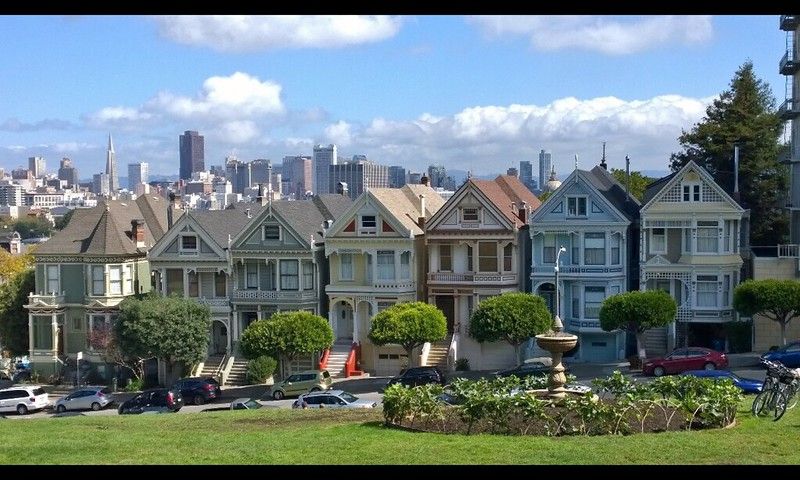

(Photo by terencechisholm / Public Domain)
$64 million Social Housing Vote Passes in San Francisco
A measure to set aside $64 million for social housing was approved by the city’s Board of Supervisors by an 8-3 vote on Tuesday, according to 48 Hills. The measure allocates the money to a city program called the “Small Sites Housing Acquisition Program,” which purchases housing whose tenants are at risk of eviction and keeps the building permanently affordable. Mayor London Breed opposed the measure on the basis that the small sites program was problem-plagued. Breed will still need to approve spending on the program, but the measure’s approval gives advocates more leverage. As soon as the measure was passed, Breed announced a plan to reform the small sites program by adding an additional $10 million of funding, possibly a sign she will work with the board of supervisors on spending the money.
The money was collected through a wealth transfer tax on the sale of properties worth more than $10 million, which was approved by voters last year. The money from that tax goes to the city’s general fund, and San Francisco mayor London Breed had so far been hesitant to apply it to affordable housing. Pro-development advocates disagree with the social housing spending, saying money should go to building rather than rehabilitating housing, given the city’s supply issue. Advocates of the measure, however, believe that in the long-term the city could use revenue from an expanded housing portfolio to eventually construct new units.
The vote, which was supported by a coalition of housing tenants, labor and community organizations, was a huge win for housing advocates. The ability of the program to purchase properties at scale, keep them affordable, and build new units will be a test of the viability of social housing as a sustainable solution to current housing pressures.
In a tweet, the Council of Community Housing Organizations wrote: “Next step: rapidly acquire homes in every neighborhood, and secure the political commitment for permanent allocation of the annual revenues.”
Developers Are Building More Mass-Produced “Granny Flats”
In response to new statewide laws making it easier to build accessory dwelling units on private land, some developers are seeing a boom in production of mass-produced “granny flats.” One company that produces mass-produced homes, HomeQuest, told the OC Register their business had increased 300 percent after the legal changes. ADUs don’t always add to the housing stock — they can be home offices or guest houses, but ADU’s that operate as rentals are typically more affordable than market rate housing in a multi-unit apartment building.
California Flunks Housing ‘Report Card’
Zooming out on the California housing landscape: the Southern California News Group released a housing permit “report card” showing the state is lagging in building affordable housing. According to the OC Register — which is owned by the News Group — the state’s cities and counties together issued 109,000 housing permits in 2020, of which 73 percent were for building units for higher-income earners and only 16 percent were built for lower-income earners. That is a mismatch with the need, which is around 41.5 percent for lower-income earners and for higher income earners and the remaining 17 percent for middle-income earners, according to the News Group. According to the report card, only 20 of the state’s 538 jurisdictions are on their way to meet their housing mandates for every income bracket.
St Louis May Charge Conversion Fee to Preserve Multifamily Units
A St. Louis alderman is working on a bill to charge a fee for developers who want to convert multifamily units into single family units, according to St. Louis Public Radio. The city has lost 400 housing units to these conversions. While the legislation hasn’t been written yet, it is being modeled on legislation passed in Chicago that pertains only to the Pilsen neighborhood and 606 trail area. Chicago’s legislation was enacted in April of this year and elapses in April 2022; it charges $5,000 per dwelling unit for the demolition of a multi-family building that is replaced with a single-family home and $15,000 for the demolition of a two-flat or townhouse. It’s unclear whether a surcharge this low would disincentivize de-conversions in Chicago, which has not released data on the success of the ordinance, or in St. Louis, but legislators are increasingly under pressure to try different tactics to keep multi-family units in supply.
This article is part of Backyard, a newsletter exploring scalable solutions to make housing fairer, more affordable and more environmentally sustainable. Subscribe to our weekly Backyard newsletter.